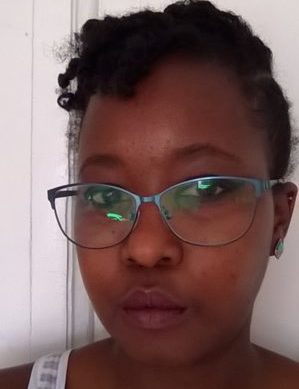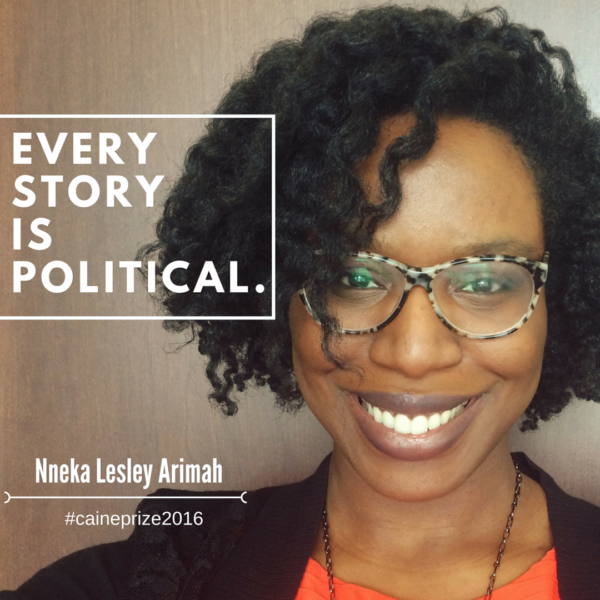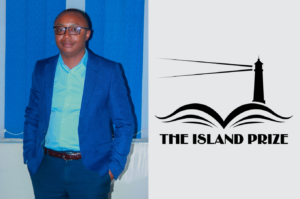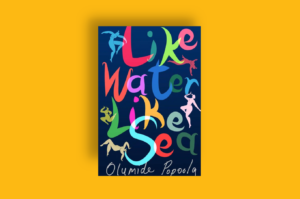Each day brings us closer to July 4th when the 17th winner of the Caine Prize for African Writing will be unveiled.
You’ve either read the shortlisted stories or read the reviews we posted right here on Brittle Paper. You have a sense of what the stories are about. You know whether you like them or not. You have your favorites, who you’d like to win, and so on. Well, it’s now time to shift focus from the stories to the brilliant minds that concocted them.
We knew this time would come, so while you were getting acquainted with the stories, we were busy interviewing each of the shortlisted authors. We wanted you to see a side of these writers that you didn’t get from reading their stories. Here is the fourth interview in the series of five. We would like to thank Nairobi-based writer Akati Khasiani for fielding the questions.
Arimah, whose interview is featured today, is from Nigeria. She is currently working on a short story collection set for a 2017 publication. She lives Minneapolis.
Her shortlisted story is titled “What It Means When a Man Falls From the Sky.” Oris Aigbokhaevbolo who reviewed the story praises it for imaging the future in ways that run counter to the science fiction tradition. [read here if you missed it]
Enjoy reading!
***
Congrats on making the Caine Prize shortlist. How is being shortlisted significant for you?
It’s always nice to receive recognition for one’s work. I’m especially looking forward to meeting and conversing with the other finalists.
The prize is awarded for outstanding “African writing.” We are curious about what ‘African writing’ means to you? Let’s be the first to agree with you that it is an old and tired question. But we are hoping that you’ll humour us and take it as a chance to reflect on the modifier “African” and, perhaps, its place within your work and your sense of yourself as a writer.
Well, I’m an African writer, specifically Nigerian, and so it’s meaningful to have the specific type of writing I do being recognized. I think this is a question that sometimes raises writers’ hackles because there is a very small box that “African writing” is often contorted into. Once you realize that the box and its limitations say less about you and more about the person holding down the lid, the moniker, African writer, becomes a factual identity, not a list of rules to follow.
What’s most important to you in the crafting process? The theme/subject/topic of the story or the form/experimentation/aesthetics of storytelling?
There’s no one element that take precedence. Each story requires something different, with some being more voice-driven depending on the narrator’s personality or requiring a strong sense of place, and so on. The most important thing to me, overall, is making sure my characters and the worlds they inhabit are complicated and fully realized.
This year’s stories all featured characters dealing with pain in some way, whether a personal trauma or a form of societal or generational suffering. How would you account for this emphasis on suffering—given the criticism that African writing only gets consumed by a global audience when it deals with negative tropes?
Most good fiction deals with conflict in some way, whether the conflicts are large or small, external or internal. I don’t think African writers should deny themselves the full range of available human emotions or the full complexity of our stories over worrying what “they” think. It’s unfortunate that negative tropes are assigned to the narrative of “African writing”, however, when I write, I do not burden myself with the task of correcting that narrative, at least not consciously. Because that would mean that I am dedicating my writing to Western audiences, trying to fix centuries of their own negative reporting. And that’s something I will not do. My art is for me. Our art is for us. Everyone is welcome to enjoy it of course.
Take us through the journey of writing this story. What inspired your choice to write a speculative piece? What are the particular challenges to crafting and fleshing out an entire reality?
TJ Benson, who was recently short-listed for the Saraba Manuscript Prize succinctly answered a similar question about why he felt inspired to write futuristic stories: “Nobody seems interested in imagining futures for us.” And it so perfectly encapsulates what’s happening with many Nigerian institutions. Institutions are made successful with money and infrastructure and all sorts of practical things, but at the core of successful institutions are leaders who imagine these (roads, hospitals, schools, what have you) lasting long enough to serve the next generation and the one after that. It means imagining futures for our youth.
As for the challenges to crafting and fleshing out these futures, it helps to push the state of our current world to its inevitable conclusion.
While your story brings to the fore grief and its effects on interpersonal relationships, larger systemic issues regarding class and race dynamics play out as well. Would you consider your story political?
All stories are political.
In a world where the Formula exists, pain can be measured, quantified and compared. There are several instances of one type of suffering being thought better or worse than another. Do you think this is true of suffering? Can one kind of pain invalidate another?
No, I don’t think one pain can invalidate another. For argument’s sake, if I drop a hammer on my bare foot, someone being shot in the liver the next town over doesn’t erase the pain I’m feeling. But if we were to plot pains on an axis, it would put my bleeding toe into perspective. The problem comes if there’s only one doctor between the two towns and I was wealthy and decided to offer her more money to stitch my toe before seeing to dude’s liver. One pain cannot invalidate another, but our world is structured so that we can often invalidate each other’s pain, intentionally and not.
The fates of Alvin, Kioni and Nneoma were haunting, for people who worked to save others from pain to succumb to that same pain. Given also the fates of Biafra, and Senegal, are you issuing a warning here, for regulating compassion?
No, no warnings against compassion here. Be vigorously compassionate.
Finally, what was your favorite of the other stories?
I’m still trying to decide. I don’t envy the judges.
Thanks to Arimah for taking the time out to respond to these questions. We wish him all the best!
Click here to read more of the #caineprize2016 interviews and here to read the reviews.
*************
About the Interviewer:
 Akati Khasiani is a city-bred, country-loving, Kenyan writer, doctor and soon-to-be economist with opinions and a tendency to daydream. Her work was featured in the Jalada 01 anthology.
Akati Khasiani is a city-bred, country-loving, Kenyan writer, doctor and soon-to-be economist with opinions and a tendency to daydream. Her work was featured in the Jalada 01 anthology.










COMMENTS -
Reader Interactions